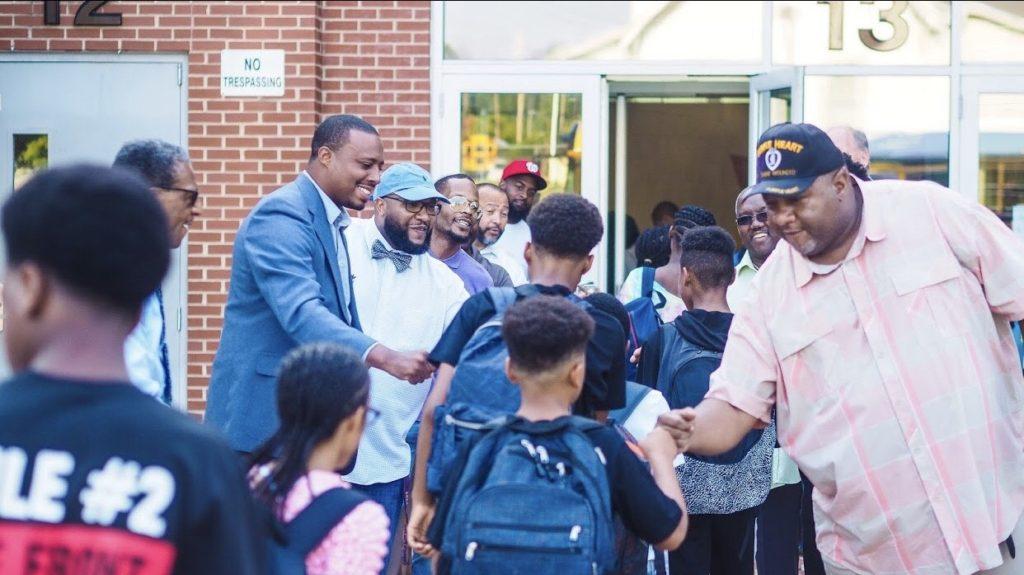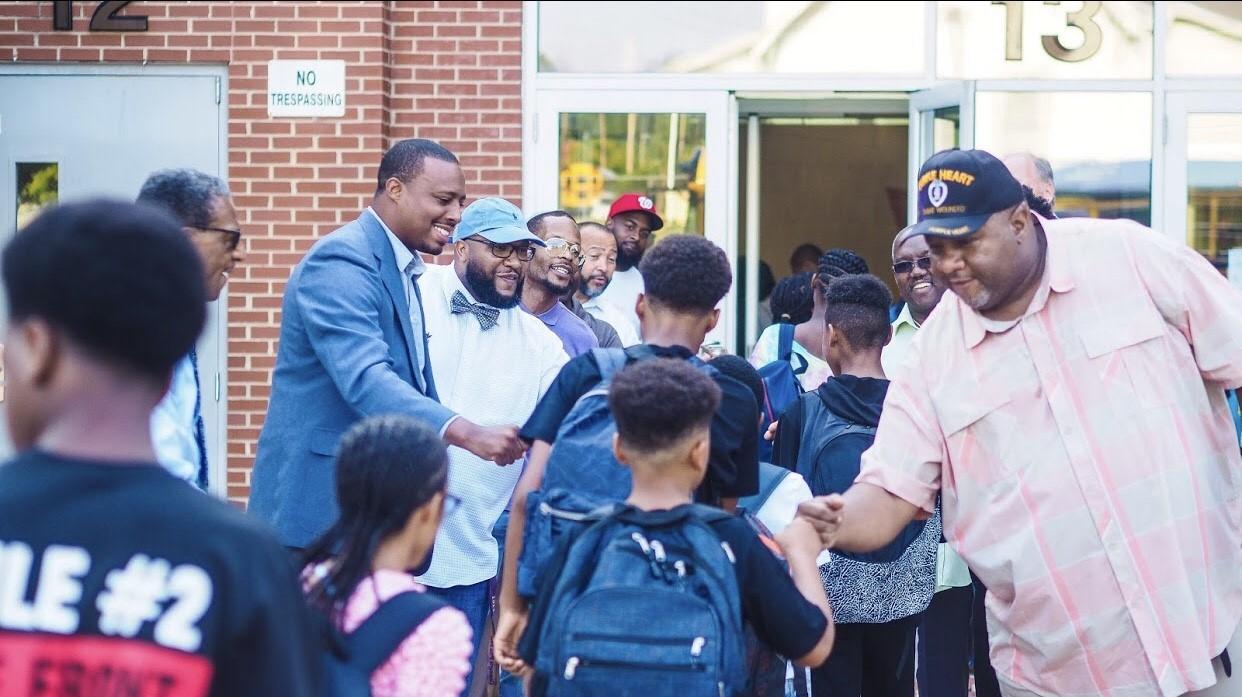
Dear Educators,
I am writing this letter to you as an educator myself and as an advocate for fathers and men—more specifically, Black fathers and men. I am writing this letter as a challenge, a charge for you to consider a shift in perspective—a shift that I believe will yield incremental gains towards more inclusive and equitable school environments and, ultimately, a more just and desirable education system. I am writing to talk about a group that, in my experience, is overlooked and/or less engaged in the education system’s parent/teacher process. This is a group that studies show wants to be involved in the school building culture but may not be equipped with the knowledge and skills necessary to do so. It is a group that is near and dear to my heart, as I identify in this way, and an elusive but vital group for the education process: a group known as fathers.
This will require a shift in thinking, particularly around how we view parents and the roles we attach to them based on gender. Now, I’ll be honest: as a straight man, I have only just recently begun to reflect more on gender norms and roles. Sure, I’ve found myself in discussion around the roles men and women might play in romantic relationships, but I had yet to truly explore how gender roles, or the stereotypes that come with them, can influence much broader social systems—including education and schools. I’ve since learned that many of the gender norms I’ve learned and even accepted can hinder the level of engagement fathers experience within school culture.
Many factors can make it easy not to engage fathers in the education process. But, we must try, and we must do the work; our students’ success depends on it. Click To TweetFor example, Mom is often seen as the go–to for all education and child-care–related needs. Perhaps this is as a result of women being associated with being more “nurturing” and handling the day-to-day tasks associated with raising a child (doctor’s appointments, PTA meetings, etc.). I’m also aware that data and societal narratives have suggested a rise in “absent fathers,” particularly in communities of color (though I would like to offer that many of these narratives have and continue to be challenged). These factors and more can make it easy not to engage fathers in the education process. But, we must try, and we must do the work; our students’ success depends on it.
As fathers, we often feel that we’re only called on when it comes to discipline. We have a nurturing side as well...that we don’t get to use often, and I would venture to say, we enjoy opportunities to tap into it. Click To TweetAs a matter of fact, an education week study examined children from urban communities in pre-K through college and found that, on average, students with engaged and involved fathers of all races were associated with significantly better education outcomes. Father involvement was quantified as being equal to nearly a half year of typical academic learning. Plus, let’s just be real, we all can use more fathers in the building—more fathers actively engaged in the day to day of education, contributing to the culture, the character, and the overall atmosphere of the school building—being active participants and agents of change within our schools. The age-old question is, how? How do we get them there? How do we get them involved in a more meaningful way? Here, I hope to provide just a few thoughts around how we might begin the process of meeting fathers and dads where they are and creating a school building culture where they feel included:
- I just have to get this off my chest out of the gate: If pops doesn’t make it to the first day of school, or back-to-school night, or parent teacher conferences, that’s not validation that he isn’t present or doesn’t care. However, that may be reason for us as educators to think about how to engage fathers where they are—maybe a skype conference for those who work late hours, for example.
- As fathers, we often feel that we’re only called on when it comes to discipline. We have a nurturing side as well. This is a side that we don’t get to use often, and I would venture to say, we enjoy opportunities to tap into it. Next time there’s a sore throat or a playground meltdown, give pops a try.
- Who loves to party more than pops? Invite us to the party: pizza party, ice cream party, birthday party… whatever the party is, WE LIKE TO PARTY TOO! You might just be pleasantly surprised; some of us make a mean cupcake!
- Can I just put this out there? Some of us dislike the PTA and its politics just as much as you do. Involvement there may not be the best fit for all fathers. BUT, if you’re open to it, we can start an AMAZING watchdog group. Let us come in and help address problems with bullying with you.
- We all have one person in our circle we listen to a little more intently than we do most people. The same is true for us fathers. It might help to identify an advocate for your building—that one voice that can rally all us together. Don’t take this on alone.
- And this may be the biggest key of them all: don’t just assume because there isn’t a “daddy,” that the student doesn’t have someone who is a father figure. You must do your due diligence to tap into every aspect of that child’s life.
I hope this helps. This is certainly not meant to be a critique or to admonish anyone in any capacity. I, as a former teacher now working for my local school division in family and community engagement, know the challenges all too well of engaging men in this work. My hope is that these six pieces of advice may assist you in changing the tide and take a bite out of that apple for you and your students.
With patience, understanding, compassion, and hopefulness,
Ryan



















